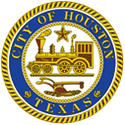 > Finance > Budget Bootcamp
> Finance > Budget Bootcamp
Finance Department
Budget Bootcamp
Welcome to the City of Houston's Annual Operating Budget Bootcamp.
Budgetary numbers include the Annual Operating Budget numbers (not actuals contained in the Comprehensive Annual Financial Report) and include all intra- and inter- fund transfers. If there are any problems, you can link directly to the dashboard by visiting this link. Quick Tip: If you get lost in the filters, click the reset button at the bottom of the dashboard.
Note: Budget Bootcamp presents the cost center names as they appear in the most recent budget for which the cost center number appears. This allows for easier grouping of cost centers names, but this name may be different for past years if the cost center was recently re-assigned.
Budget References
- You can get the City of Houston's Annual Operating Budget at:www.houstontx.gov/budget/index.html
- We've provided the raw budget data at:
http://data.houstontx.gov/dataset/city-of-houston-fiscal-year-adopted-operating-budgets
Budget Lingo
Annual Operating Budget - Each year the City adopts an annual operating budget to legally define what it expects to collect in revenues and spend in expenditures. The annual operating budget includes the general fund (core government services), enterprise funds (airports, water & sewer system, and the convention & entertainment district facilities), special revenue funds, and internal city service funds. It does not include tax increment reinvestment zones (TIRZ), Capital Improvement Projects, or other local government corporations.
Adopted Budget - City Council passes (or adopts) the Annual Operating Budget during the June preceding each fiscal year. While the adopted budget is binding, the Mayor and departments have some leeway to shift funds around. Similarly, City Council can vote throughout the year to change various aspects of the budget.
Current Budget - Changes made by the Mayor, City Council, or departments to the adopted budget during the fiscal year in the enterprise resource planning system are reflected in current budget numbers. All numbers contained herein are solely adopted budget numbers for every fiscal year - not the current budget as of the end of the fiscal year or the actual revenues and expenditures certifed as certified in the Comprehensive Annual Financial Report.
Fiscal Year - The fiscal year (the time period the city budget covers) runs from July 1 to June 30.
Fund Accounting - Governments use fund accounting to keep track of revenues and expenditures. In this system, a fund is a self-balancing set of accounts (called general ledger, or GL, accounts), segregated for specific purposes in accordance with laws and regulations or special restrictions and limitations. You can learn more about fund accounting on Wikipedia. The City's different fund types are listed below.
Departments vs. Business Areas - You're familiar with the concept of City departments. In the budget, departments are called business areas. There are also two business areas that are not departments: General Fund Debt Service and General Government.
Cost Center (or, Fund Center) - A cost center accounts for who inside a business area/department is expending or receiving funds. A cost center can be thought of as a financial division.
General Ledger Account (or, GL Account) - An account helps explain what activity causes an expense or revenue to occur. The City has lots of GLs for purposes ranging from classified salary to sales tax revenue to electricity hardware & parts purchases. Accounts that start with a 4 are revenue accounts, whereas those that start with a 5 are expenditure accounts. GL accounts can roll up into like-minded categories called a GL Category.
Fund - A fund is a set of self-balancing accounts (or general ledger) that is designated to receive a certain type of revenue or expend money on a certain type of activity. Each year, the City adopts an annual operating budget for nearly 50 funds. What different type of funds does the City use?
- Governmental (General) Funds - Revenues from property taxes, sales taxes, franchise fees, court fines, etc. are part of the governmental funds. These funds are then used to pay services like public safety, libraries, parks, solid waste management, health, street traffic control, and normal government functions. The most important Governmental Fund is the General Fund (Fund 1000), which pays for core government services and other general government operations.
- Enterprise Funds - Some of the City departments offer services that operate like private enterprises. Their operations and long-term debt are covered entirely by user fees or dedicated revenue sources (and not tax dollars). Major operations include:
- The Combined Utility System (water and sewer system)
- The Houston Airport System
- The Convention and Entertainment District (Houston First)
- Special Revenue Funds - Some revenues (like asset forfeitures, auto dealer fees, building inspection fees, etc.) are put into special funds in order to better track these revenues and to ensure their proceeds are only spent on specified purposes.
- Internal Service Funds - These funds provide services to City departments on a cost-reimbursement basis. The two funds in this category are the Health Benefits Fund (funded by health insurance premiums) and the Long-Term Disability (LTD) Fund.
- Service Chargeback Funds (or Revolving Funds) - These funds are used to "charge back" departments that receive services from another department within the City. Service Chargeback Funds examples include fleet management, workers' compensation, central services, and project cost recovery.
- A full explanation of funds (including those not found in Budget Bootcamp) can be found in the Brief Description of the Funds Used in Budget Process.
Credits
Budget Bootcamp is a Sketch City project that was conceptualized at a City of Houston sponsored Hackathon.
Data presented here is solely for information purposes and shall not be considered accurate, factual, or complete. The official FY2019 Proposed Annual Operating Budget should be consulted for accurate information.
Download your copy of the annual budget data at http://data.houstontx.gov/dataset/city-of-houston-fiscal-year-adopted-operating-budgets

